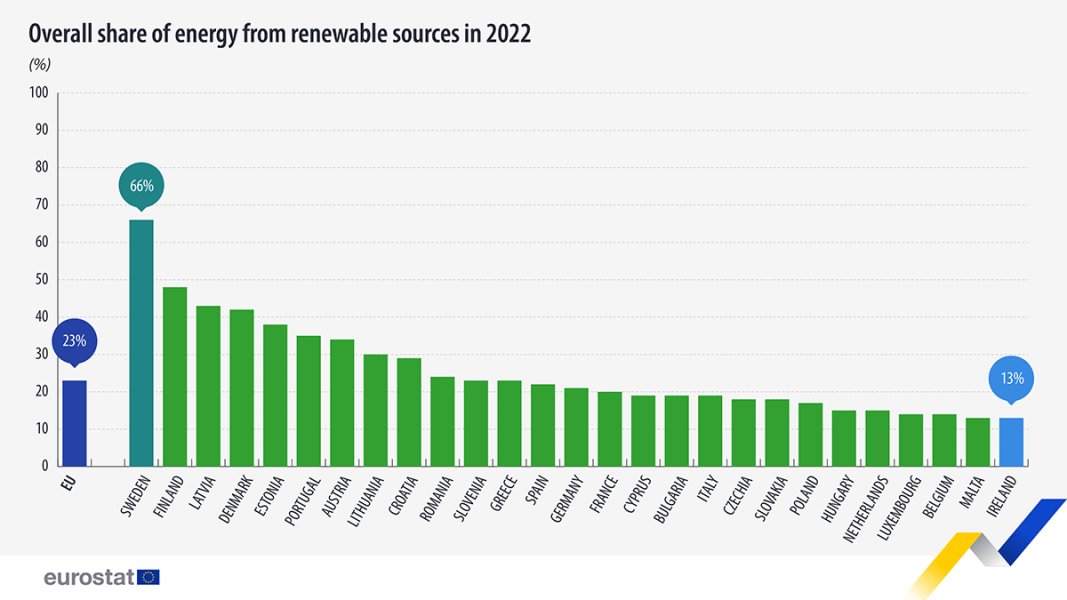In a significant stride towards sustainable energy, renewable sources accounted for 23% of the European Union’s gross final energy consumption in 2022, as reported by the Eurostat agency.
This marks a notable increase of 1.1 percentage points from the previous year.
Following the revision of the Renewable Energy Directive, the EU has raised its 2030 renewable energy target from 32% to an ambitious 42.5%, later adjusted to 45%. This necessitates accelerated efforts by EU member states to meet the new collective target, which calls for nearly a 20 percentage point surge in renewable energy’s share in the EU’s gross final consumption by 2030.

Leading the charge is Sweden, where renewables contributed an impressive 66.0% to its gross final energy consumption in 2022, primarily through hydro, wind, solid and liquid biofuels, and heat pumps. Finland (47.9%) and Latvia (43.3%) also reported high usage of renewable sources.
Denmark (41.6%) and Estonia (38.5%) predominantly relied on wind and solid biofuels for their renewable energy needs. Portugal (34.7%) utilized solid biofuels, wind, hydro, and heat pumps, while Austria (33.8%) mainly depended on hydro and solid biofuels.
Conversely, the lowest shares of renewable energy were recorded in Ireland (13.1%), Malta (13.4%), Belgium (13.8%), and Luxembourg (14.4%).
Out of the 27 EU member states, 17 reported renewable energy shares below the EU average of 23.0% in 2022, underscoring the varied progress across the union.